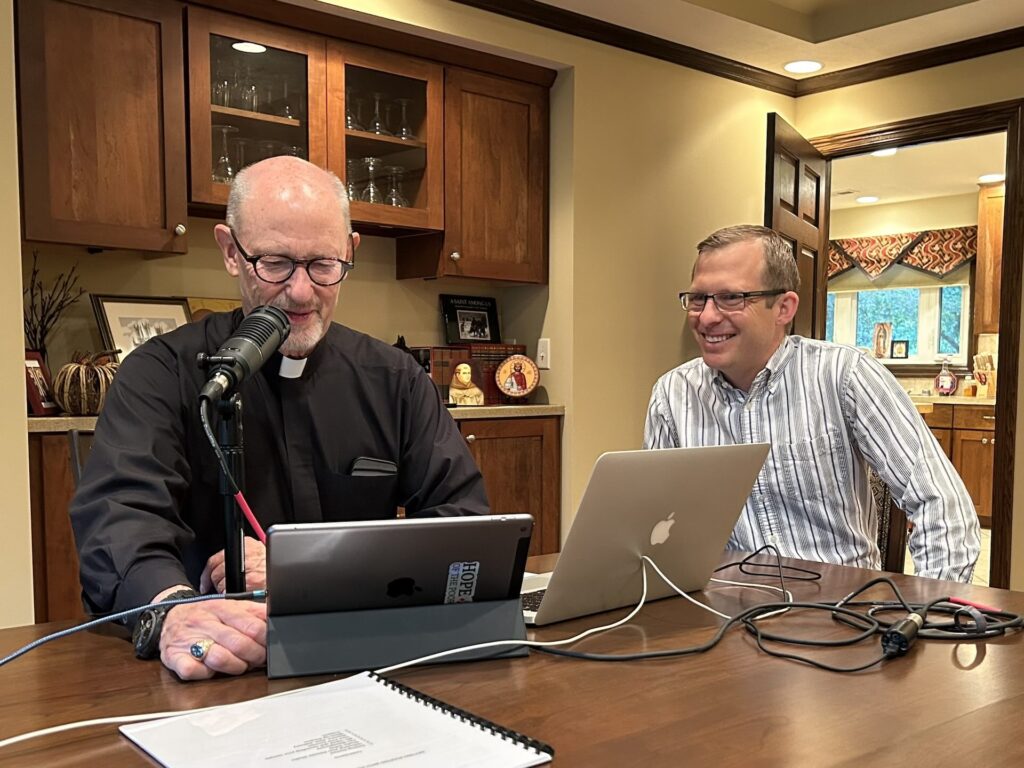Those who belong to Christ Jesus have crucified the flesh with its passions and desires.
(Galatians 5:24)
Taking our cue from the letter to the Galatians, this exercise is called “the fruit of the spirit.”
Before getting into specifics, we need to be clear about what the scripture means by “fruits.”
This is important, because anyone who tries seriously to live the Christian life is faced with two opposite temptations, each of which contains a portion of truth, but neither of which alone will bring us home.
We know that living as a Christian means making a serious change of life: away from darkness and toward light, away from serving self and toward serving God, away from selfishness and toward love for others.
The two temptations arise as we consider how that change is accomplished.
The first temptation reacts to the clear command of God that we must repent and reform our lives.
We need to grow in virtue, avoid committing sins, and practice charity.
We need to gain control of ourselves, mastering our minds and wills so that we can obey the call of God.
Many scripture passages and all kinds of saintly examples point us in this direction.
Seeing the gravity of the work ahead of us and the height of the mountain we need to climb, we can turn the Christian life into a kind of self-improvement regimen.
We can think that it’s all on us, on our effort, on what we can accomplish.
Yes, we have a serious work ahead of us; but a one-sided emphasis on the part we play in changing ourselves leads either to pride in our success or to discouragement and despair at our failures.
The second temptation runs in the opposite direction.
We know that the only one who can change us is God himself.
Our efforts will be useless without him.
We know that he is active within us to change us, to give us new life, and to make good on his promise of salvation.
We can come to look at Christianity as the application of a sort of magic, a medicine that does its work in us without our help.
We can get lazy and complacent, convinced that, as long as we carry the right ideas about God in our minds, as long as we feel that we have faith and are sorry for our sins, we don’t have to do much about it.
The true way forward, in this as in so many areas of Christianity, includes and integrates both of these contrasting truths.
Yes, we have been saved by grace through faith; it is not our own doing, but the gift of God (Ephesians 2:8), and without Christ we can do nothing (John 15:5).
At the same time, we are to “strive to enter by the narrow gate” (Luke 13:24), to “pommel our bodies and subdue them” (1 Corinthians 9:27), and to “outdo one another in showing honor” (Romans 12:10).
In a mysterious way, God does everything and we attempt everything at the same time.
“Work out your own salvation with fear and trembling,” writes Paul, accenting the first of these truths, and then he adds, insisting on the second: “For God is at work in you to will and to work for his good pleasure” (Philippians 2: 12).
We need to keep these two truths in mind constantly.
When Paul speaks of the “fruit of the Spirit,” he is accenting the truth of God’s free gift.
Fruit is not something you can manufacture; it arrives on the tree by itself.
When he speaks of the “works of the flesh” and calls us to “walk by the Spirit,” he is accenting the truth of our side of the picture, the need to gather all our energies into cooperating with God’s action in us.
Beginning tomorrow, we will get specific about the fruits of the Spirit and how to grow in each of them.
Today in prayer, let us gratefully remember God’s work in us, and set ourselves to cooperate with his grace wholeheartedly.




